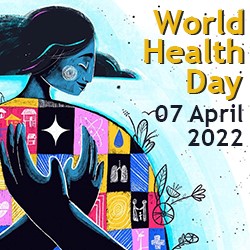It is celebrated every year on 7 April with the aim of drawing attention to a specific health topic of concern to people all over the world. On this date in 1948, World Health Organization was founded.
This year, the World Health Day is dedicated to raising the awareness on the threats posed by climate change and calls for governments to take immediate steps on climate change to protect the health of the communities they serve.
According to WHO, 13 million deaths around the world each year are due to avoidable environmental causes and climate change is expected to cause approximately 250 000 additional deaths per year between 2030 and 2050 and a wider range of health problems such as respiratory illness, cardiovascular disease, injuries, and premature death.
The global scale of environmental health problems requires consideration on how to curtail its size within the limits of global ecological sustainability. Enhancing the public narrative about climate change is not only justified, but it would make a difference in policy surrounding the paradigm.
The 2030 agenda recognizes that the relationship between health, economic development and social cohesion is linked to climate change and calls for a roadmap for climate actions that will reduce emissions and build climate resilience.
Building upon the knowledge that people’s health is intertwined with our planet’s climate, health must take a pivotal part of every country’s climate policy. The campaign “Our planet, our health” lays extraordinary foundational premises for intensive efforts to protect the health of the planet and the well-being of its people!






